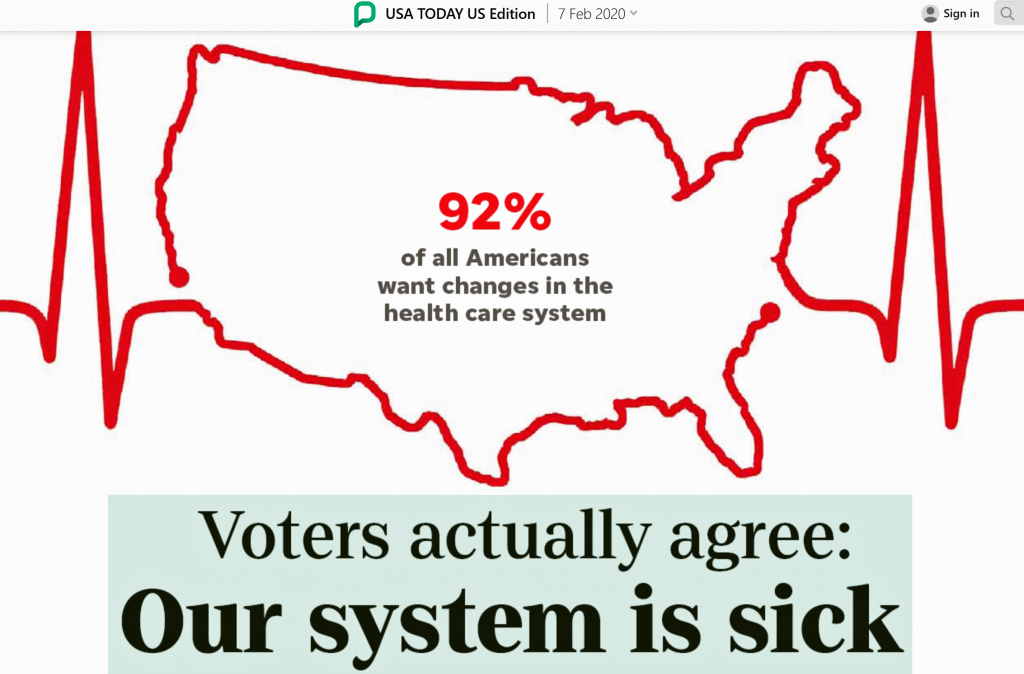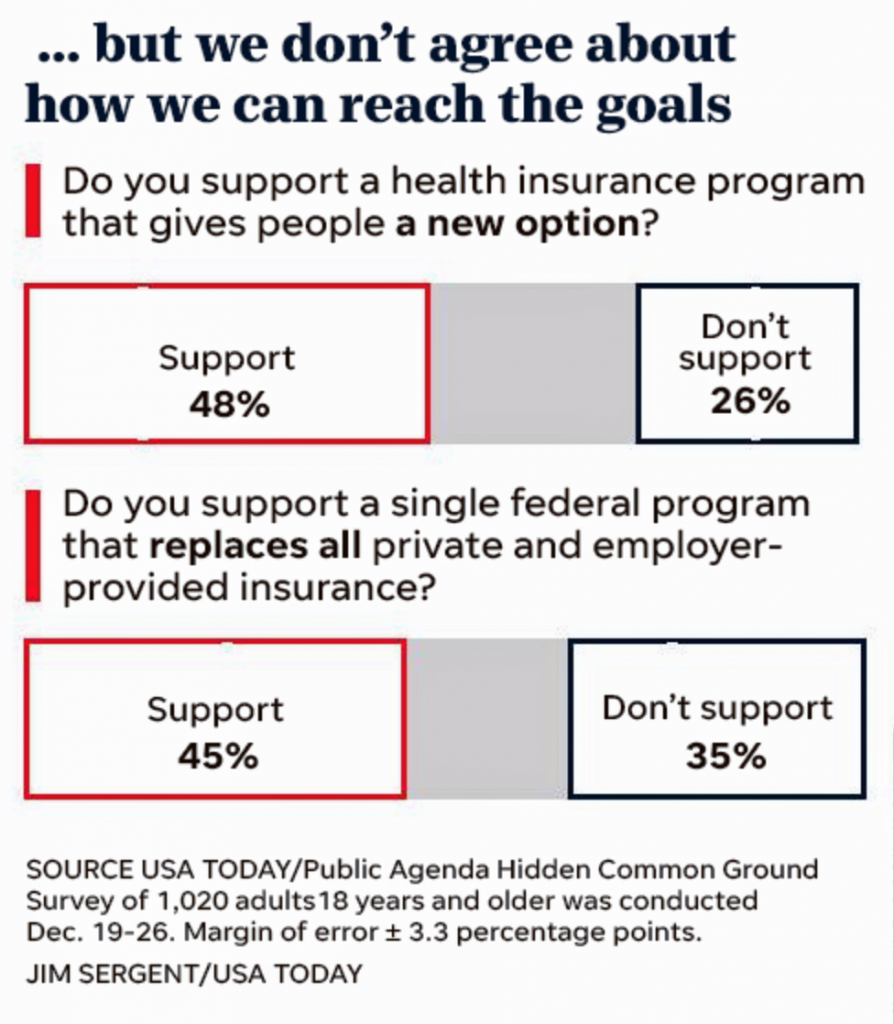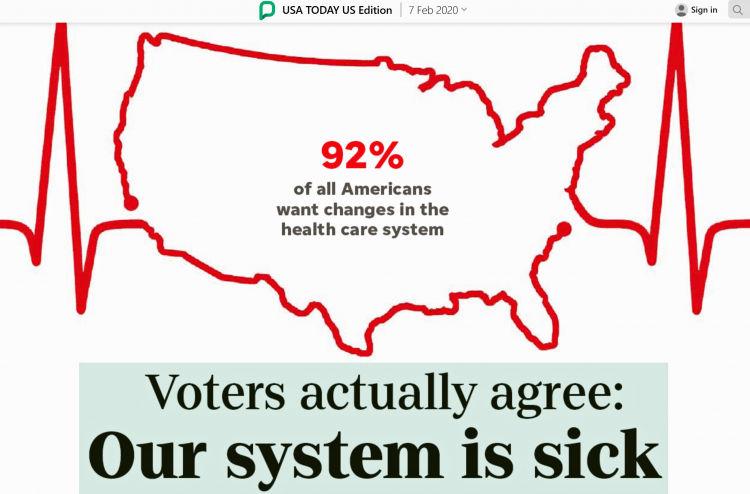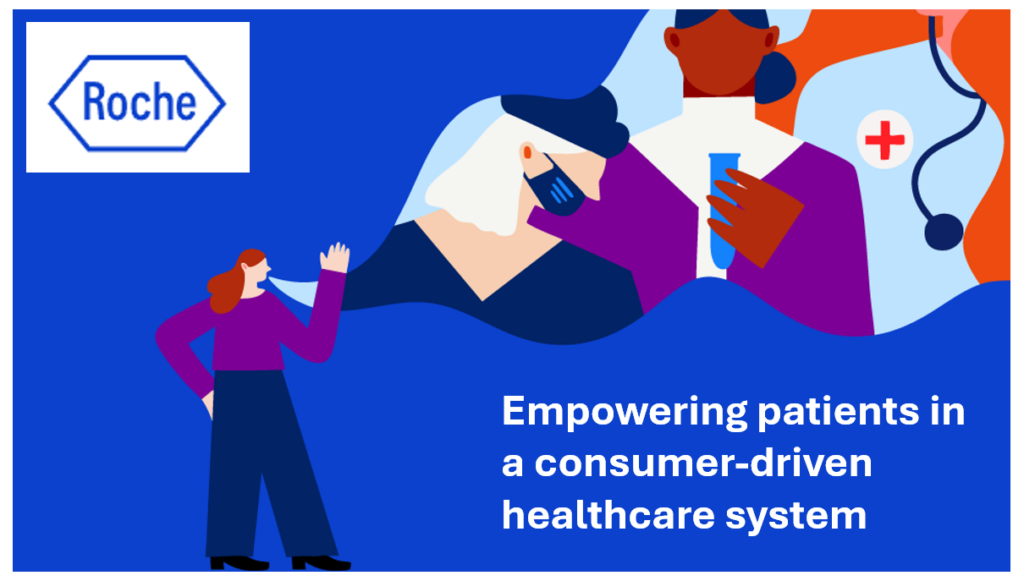“We need to demand our health citizenship. That means our nation must approach medical treatment and data privacy as civil rights that protect everyone.” This is the start of my column, Americans, let’s claim our health care rights, published by USA Today today.
 USA Today is publishing a 10-part series called “Hidden Common Ground” addressing key issues where Americans can come together. Thus far, the series has covered climate change, and this month health care. Going forward, we’ll see analyses on jobs, gun rights and violence, and immigration through May’s publishing schedule.
USA Today is publishing a 10-part series called “Hidden Common Ground” addressing key issues where Americans can come together. Thus far, the series has covered climate change, and this month health care. Going forward, we’ll see analyses on jobs, gun rights and violence, and immigration through May’s publishing schedule.
In their study conducted in December 2020, USA Today polled 1,020 adults age 18 and over in the USA TODAY/Public Agenda Hidden Common Ground Survey. The poll found that nearly all Americans point to the following goals are important:
- Making health are more affordable for ordinary Americans
- Lowering the cost of prescription drugs
- Making sure people with preexisting conditions can get affordable insurance
- Covering long-term care for the elderly and disabled
- Making sure all communities have access to enough doctors and hospitals,
among other highly valued health care and health system goals.
This poll is published today in a four-page special section devoted to health care policy. The top-line of the section, noted in the title of page A-1, is that 92% of all Americans want changes in the health care system.

In addition to my column, other health policy recommendations are offered by…
- Dr. Robert Pearl of the Stanford University School of Medicine, with advice on how to fix the U.S. health care system;
- Dr. Marc Siegel a professor of medicine at NYU Langone Medical Center, proposing that a universal catastrophic option is the best way forward for health reform; and,
- Emily Barson and Russ Latino of United States of Care and Americans for Prosperity, respectively, discussing the crucial role of nurses to help meet the nation’s health needs.
The goals shown in the first chart garnered majority agreement in this study…but as another part of the survey found, we don’t agree about how to reach these goals.
 This last chart illustrates that point — that people are split in terms of just “how” to get to universal health care and improved access to care for all Americans.
This last chart illustrates that point — that people are split in terms of just “how” to get to universal health care and improved access to care for all Americans.
What to take away from this is that USA Today’s work has revealed and confirmed what many health policy people (including me) believe to be true: that health care does not have to be a wedge issue and, instead, can help to bring (most) Americans together…if we have policymakers in Washington DC and State houses who make it a priority to do so for the benefit of public, community and individual health.
“There’s the making of a public conversation about this, and it does not need to be around ideology,” Will Friedman, president of Public Agenda, states in the paper. Public Agenda is a nonpartisan, nonprofit research organization.
In yesterday’s Health Populi, I discussed the Bipartisan Policy Center’s modest proposal for health reform in America, which also seeks to bring us together via health policy.
The gridlock comes at certain flashpoints, USA Today explains. Two of the biggest ones are the size of government and taxes.
What is clear is that voters don’t want a state-by-state solution, but a national one — which speaks to Americans looking for a national health reform approach. And, that people want relief from health care costs, Larry Levitt from Kaiser Family Foundation noted in the write-up.
This, above all, may be what solidifies the health care voters headed to the polls in November 2020. As much as “the economy” (that is, the national economy) is a key talking point for the President, peoples’ personal economies — their jobs, their wages, and their health care — is what’s most important to EveryMan and EveryWoman.
That is, EveryVoter.





 I was invited to be a Judge for the upcoming
I was invited to be a Judge for the upcoming  Thank you Team Roche for inviting me to brainstorm patients as health citizens, consumers, payers, and voters
Thank you Team Roche for inviting me to brainstorm patients as health citizens, consumers, payers, and voters  For the past 15 years,
For the past 15 years,